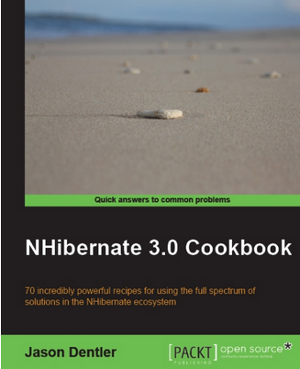Big hairy bugs and other weird looking stuff.
Yesterday, I spent an embarrassing amount of time searching for a bug. I’m sure this is well-documented somewhere on MSDN. It even generates a compiler warning in some cases. Still, it’s not the behavior one would expect from C#.
When creating lambdas (including LINQ expressions) inside a for each loop, don’t use the iterator variable in your lambda. Let me explain with some code:
foreach (Type controllerType in controllerTypes)
{
kernel.Bind(controllerType).ToSelf().InRequestScope();
kernel.Bind<IController>().ToMethod(ctx => ctx.kernel.Get(controllerType)).Named(GetName(controllerType));
}
Why am I using a method to get the controller? It just so happens that my AccountController is also a domain event handler for my AccountNameAlreadyUsed event. This goes back to Ayende's tip in my domain events post: To get a message back to the UI, fire a new event and have the UI listen for it. In this case, I need the UI to complain when the account name they selected is already being used.
In case your mind has wandered to the dark side, throwing exceptions is not an acceptable way of passing messages in an application.
Now, why the odd mappings? Let's say I bind IController and IHandle<AccountNameAlreadyUsed> to AccountController in the request scope. It doesn't quite work like you would first expect. You will have one instance of AccountController returned for IController and a separate instance for IHandle<AccountNameAlreadyUsed>.
Instead, I’m saying that for each request for an IController, go get an AccountController, essentially delegating the request to the ToSelf() binding. I have a similar ToMethod() lambda binding for IHandle<AccountNameAlreadyUsed>. Since both interface bindings are fulfilled by the ToSelf binding, only one instance of AccountController is created for the request, instead of two.
So, this explains why I need the lambda in the first place. Why didn’t the code above work?
As it turns out, there was some funny business going on underneath the covers between the foreach iterator and the lambda. Here’s the symptom: No matter which “instance” of the lambda was being referenced, inside the lambda, the iterator variable (controllerType) was always the first value that was iterated. No matter which controller I requested, I always got an instance of AccountController, since it happens to be first alphabetically.
Once you realize what’s going on, the fix is simple. Create another variable and use it inside the lambda instead. So, instead of the code above, we get this:
foreach (Type controllerType in controllerTypes)
{
var controllerType2 = controllerType;
kernel.Bind(controllerType).ToSelf().InRequestScope();
kernel.Bind<IController>().ToMethod(ctx => ctx.kernel.Get(controllerType2)).Named(GetName(controllerType));
}
If, instead of a lambda, we had a LINQ expression, the compiler would generate a warning about this issue – at least in VB.NET. If I hadn’t already seen that warning from LINQ expressions, I would probably still be bug hunting.
Jason


